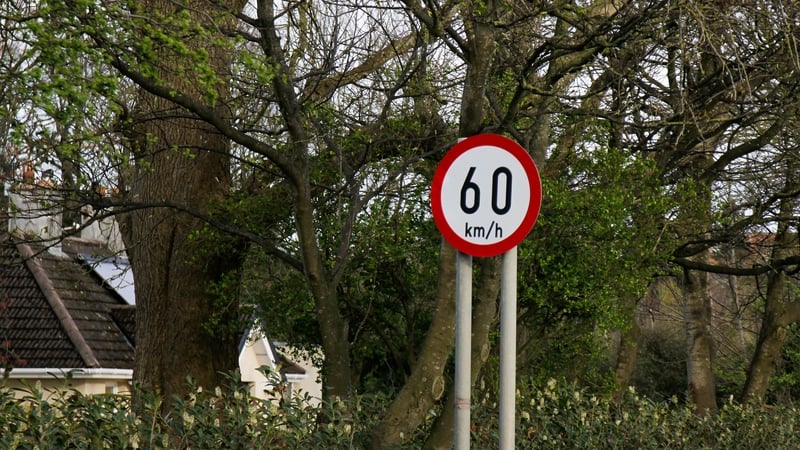Reduced speed limits are being introduced on a "phased basis", with the intention that a 60 kilometre per hour limit on local roads would be in place by November, according to the Minister of State at the Department of Transport.
Last year the Government unveiled plans to reduce the speed limits on many roads, including dropping the limit on local roads from 80km/h to 60km/h.
The plan will also see speed capped at 80km/h on national secondary roads where the limit currently stands at 100km/h.
Within towns, cities and residential areas there would be a limit of 30km/h, while roads on the fringes of urban areas could be capped at 50km/h.
Speaking on RTÉ's Morning Ireland, James Lawless said the "intention is that in November of this year... the 60km/h default local load limit would be introduced".
"That will be followed in the early new year by the regional road limits and so on," he added.
The changes were announced last year amid a rise in deaths on the roads that saw 184 people - the highest annual figure since 2014.
There has been a further increase in road deaths so far this year, with 104 people losing their lives so far this year, an increase of 15 on the same time last year.
Mr Lawless also said two pieces of legislation were approved by a meeting of the Cabinet yesterday and will be brought forward through the Dáil in the term ahead.
"The first one was data sharing between the local authorities, the Road Safety Authority and An Garda Síochána.
"So, what this goes to is historically the scene of a crash, the garda are first investigators, first responders and they would collect information as part of an investigation as to the causes, the road conditions, the who, what, when and that's obviously very useful to roads engineers and local county council," Mr Lawless said.
"If there's a pattern identified, they can take remediation action and maybe look at straightening out the road, or the road surface or whatever technical issues may arise.
"An issue arose with sharing that data, GDPR and due to other technical reasons it was actually flagged by the local authorities themselves. They said look, we're not comfortable receiving this data for various technical legal reasons. So, this puts that back on a solid footing. So there's a foundation there that the data can be shared from the Road Safety Authority from the Department of Transport on to the local authorities."
Earlier this year, the Department of Transport confirmed to RTÉ Prime Time that crash data related to 80% of the road network was not included in a centralised analysis it undertook to inform road safety intervention.
